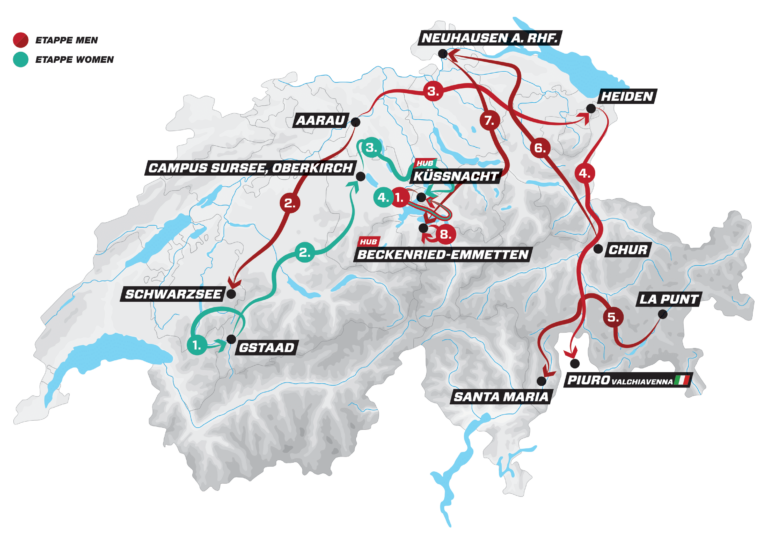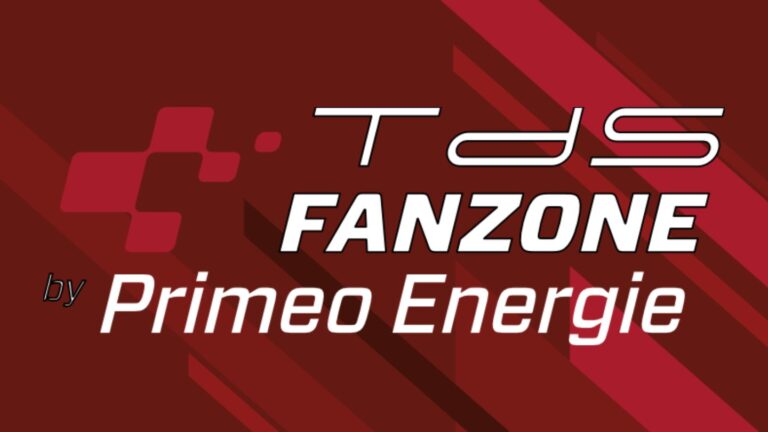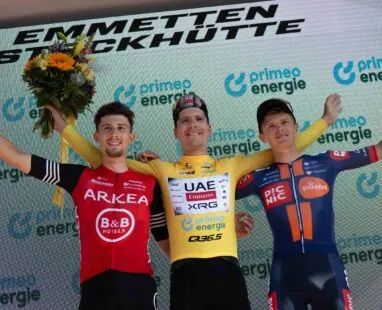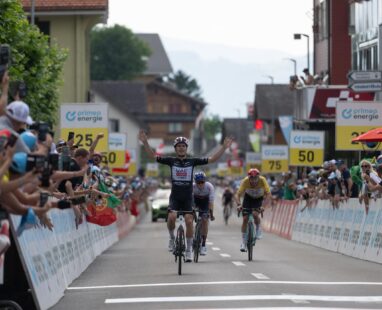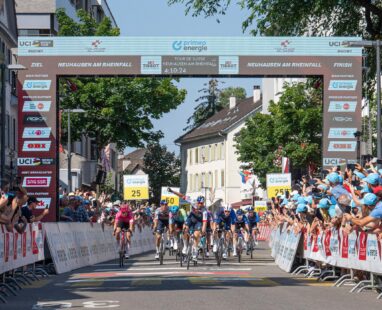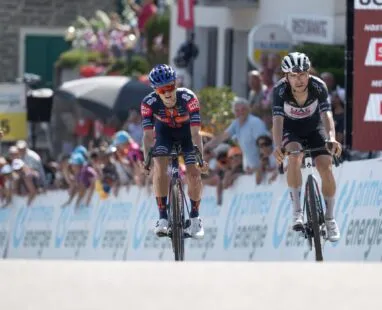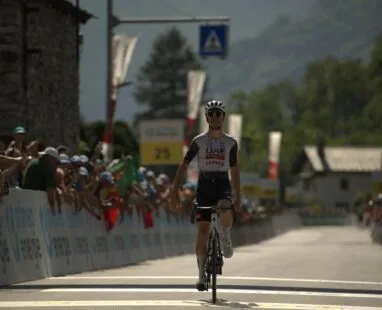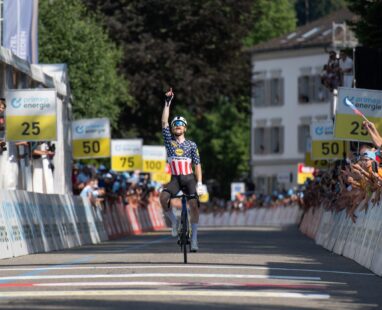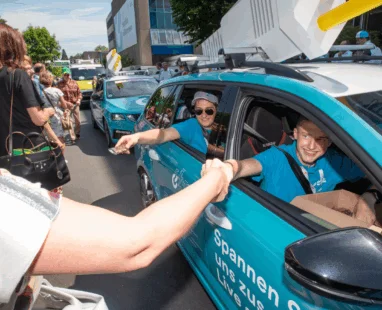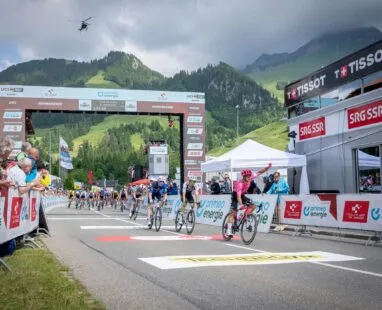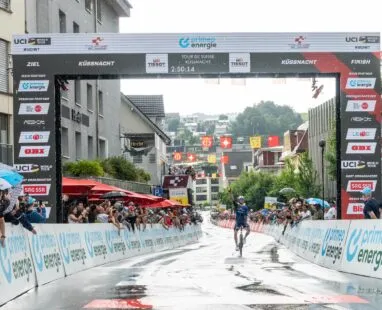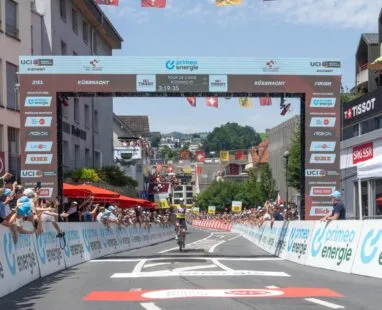Primeo Energie and the Tour de Suisse are an ideal fit – both use enormous amounts of energy, and both are firmly committed to sustainability.
Electricity and heat, watts and volts: Energy is Primeo Energie’s day-to-day business. It is also at the very heart of the Tour de Suisse. After all, when cyclists fully lean into their pedals, they release massive amounts of energy.
Cyclists’ energy output is measured in watts, just like at Primeo Energie, and a top sprinter can reach up to 1,900 watts in a race, but only for a few seconds. The figure for women is slightly lower. When averaged over an entire race, the output of a professional cyclist is between 250 and 300 watts. “It’s a bit like the horsepower in cars,” says David Loosli, the sports director of the Tour de Suisse. “Everyone knows how many watts they can produce when in top form.” While an average trained amateur cyclist can produce 3 to 4 watts per kilogram of body weight per hour, professionals can produce between 5 and 6 watts per kilogram per hour.
The crucial thing for doing so is, of course, having the necessary energy supply in the first place. Race preparations certainly call for a balanced diet, but the race itself requires an all-out calorie binge. David Loosli tells us that “you’re always eating during a race.” No wonder, because the body burns up between 8,000 and 10,000 calories during a major event.
Primeo Energie and the Tour de Suisse also have another important aspect in common – a strong commitment to becoming more sustainable. Primeo Energie is therefore gradually switching the heat it supplies away from fossil fuels and towards renewable sources. This means relying increasingly on biomass, waste heat and environmental heat rather than on oil and gas. In their basic supply, customers get electricity that is solely obtained from renewable sources. And aventron, a subsidiary, is one of the largest producers of green electricity in Switzerland.
The Tour de Suisse is also ramping up its efforts to become more sustainable. “We want to cut our CO2 emissions by half by 2027,” says Mario Klaus, Sustainability Officer for the Tour de Suisse. After that, we will strive for “net zero.” In the medium term, the Tour de Suisse aims to become the world’s cleanest cycling event,
It has thus decided on several measures. On the one hand, it will use electric vehicles in its fleet wherever possible, double up on its recycling, include more vegan and regional items in its catering, and ask athletes and their teams to pay close attention to the effect their actions have on the climate. On the other hand, the organisers will ask fans to avoid driving wherever possible and to get to races by public transport or, even better, to come on their own bikes.
